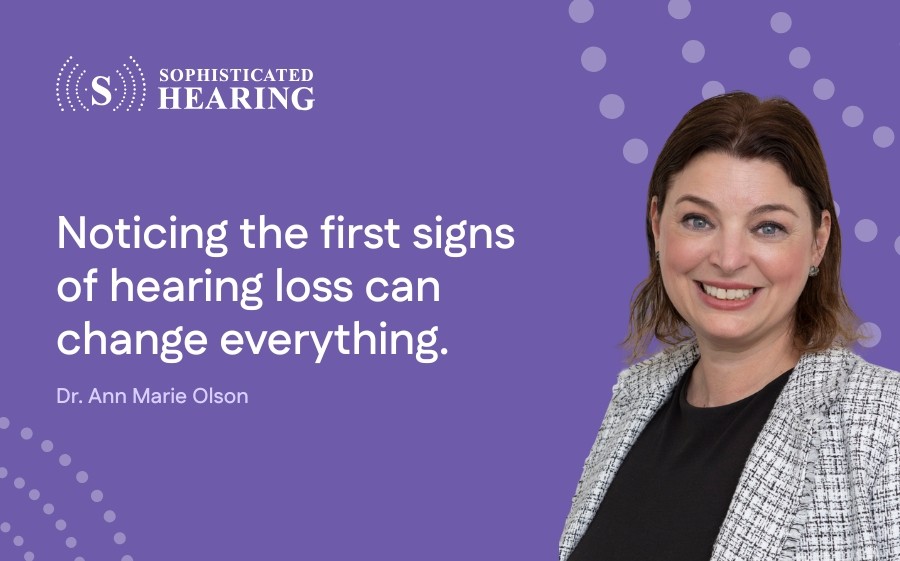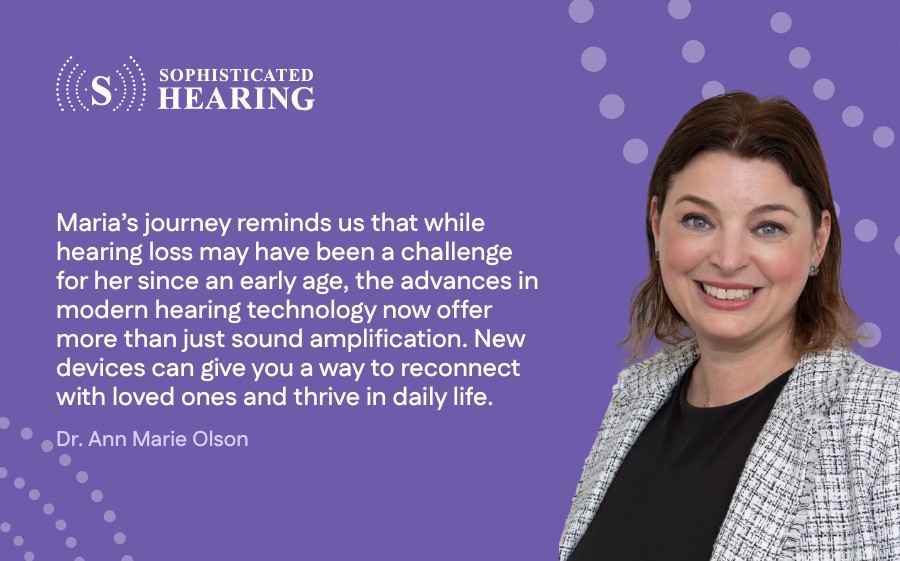Modern solutions make clearer hearing possible.
Maria’s story began at a young age. “From childhood, I became aware of my hearing challenges as I started wearing hearing aids at the age of 7,” she says. “Although it was never easy, I managed with just one hearing aid in my right ear for most of my formative years.”
Discover advanced hearing technology and compassionate care that restored connection, confidence, and joy in Patty’s life.
Discover everything you need to know about presbycusis, also known as age-related hearing loss.
Request a Callback









